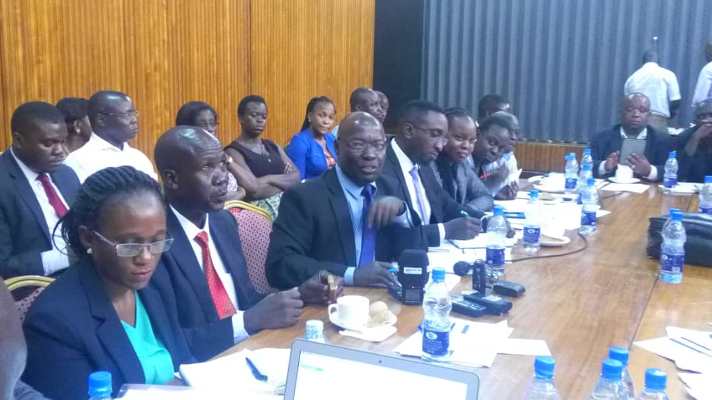A section of landlords have protested the Landlord and Tenants Bill 2018, arguing that the recommendation to have landlords dragged to court over annoying tenants is ambiguous in nature.
While appearing before the Committee of Physical Infrastructure during a public hearing on the Bill that is under scrutiny before debate on the floor of Parliament on Wednesdays, Shirley Kongai, the representative from the Real Estate Agents of Uganda described Section 51 of the bill as ambiguous on the annoyance where the tenant can drag the landlord to courts of law over the matter, arguing that this particular clause falls short of explaining the kind of annoyance that tantamount to reporting to Court.
He said this might see tenants always in court with their landlords.
During the Committee hearing today, a number of issues rose up including the stopping of paying tenant fees in foreign currencies where both MPs and stakeholders argued that enforcing the charges to be paid in dollars as it appears now with some landlords not only puts unnecessary pressure on the tenants, but also demean the local currency.
Makindye Sabagabo MP, Emmanuel Kigozi said that payment of tenant charges in dollars is already illegal according to the Public Finance Management Act 2010, hence this issue should not even exist in the bill under scrutiny.
The Kampala City Traders Association (KACITA) called for institution of an independent landlords-tenants tribunal that can handle the misunderstandings of both the landlords and tenants other than running to courts of law every time they have disagreements.
Currently, section 30 of the Bill suggests referring all matters of disagreements especially on failure to pay rent and claims of rent arrears to courts of law, which KACITA says is time wasting and costly.
The KACITA chairman Everest Kayondo argued that the tribunal that can be placed at a sub county level can mitigate the issues and only matters can be referred to courts of law when the tribunal fails to resolve them.
“Instead of saying that whenever the tenant has disagreements with landlord and have the case dragged to court, we were of the view that we put in place a tribunal with representatives to listen to the views because it will take long to get justice in court,” Kayondo said.
While introducing the Landlord Tenant Bill 2018 yesterday, Chris Baryomunsi, the State Minister for Housing told the Committee that the Bill seeks to protect tenants against annoyance by landlords but said that Government will have to define what constitutes annoyance.
The Bill also includes provisions on cases where tenants annoy landlords, which raised questions from MPs who argued that the Bill gives more space for negotiations and thus puts landlords in a begging position.
The Bill also requires that landlords reduce rent if some items in the agreement such as furniture are not provided with the Minister arguing that the Legislation also seeks to protect the tenant’s property where the landlord must use courts of law to reclaim rent arrears but not to grab tenant’s property.





